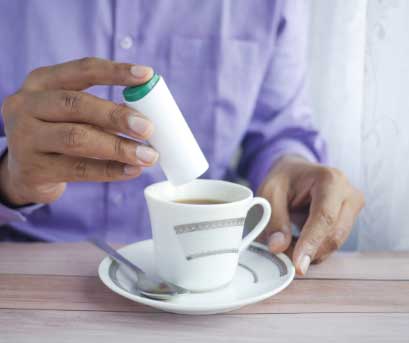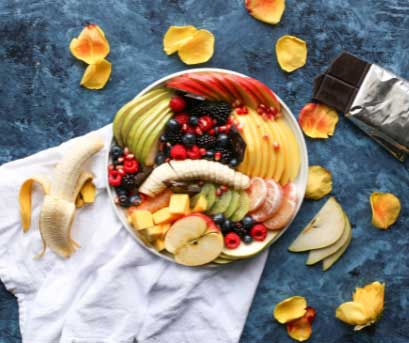I want to talk about one of the questions that I get asked the most often in clinic:
What about artificial sweeteners?
Why should we avoid them? Do we need to avoid them?
On the face of it, artificial sweeteners have great potential, right? Because instead of 140 calories in our can of drink we get zero. Yay! It’s like the perfect diet food. Right?
If you ask me, the answer is probably not.
The first thing for me is in the name, it’s an artificial sweetener, it isn’t known in nature. As a general rule, we want to limit the intake of artificial foods, you can refer to them as ultra-processed, and most of us already know that these are the kinds of foods that we should be avoiding.
Artificial sweeteners are a lot sweeter than sugar. They can be about 600 times sweeter than sugar. That’s why the diet version of a drink is sweeter than the actual version of the drink. If you’re drinking these artificial sweeteners on a regular basis, what\’s actually happening is that you are creating a new threshold for sweetness. And in this new threshold, naturally sweet things like fruit just don\’t measure up. So we just want to have more things that are sweeter and sweeter.
A weird animal study found that sweeteners are potentially highly addictive. And when rats were given the choice between saccharin and cocaine, they went for the saccharin. So this isn’t great news.
Safety of Artificial Sweeteners
When it comes to the safety of these sweeteners, studies are inconclusive. But what I can say is that we really don’t know the effect that large amounts of these chemicals have over many years. I’m also concerned by the fact that some trials have shown that consumption of diet drinks can put you at a far higher risk of developing conditions such as metabolic syndrome and type II diabetes, while most people choose the artificially sweetened drink because they want to reduce their risk of these things.
Artificial sweeteners appear to change the host microbiome, meaning that they affect your gut bacteria which are basically in charge of everything in your body. So that has the potential to not be great news.
What this can do is lead to decreased satiation, which means that you require more food in order to feel full.
Another thing is it can alter glucose homeostasis, which can be a cause of insulin resistance, which is associated with increased caloric consumption and weight gain.
So even if the research isn’t conclusively against it, I suggest we err on the side of caution. I don’t recommend people use artificial sweeteners, I recommend avoiding them whenever possible.
If you would like to find other alternatives, personally, I would say drink more water. Many of us have become unaccustomed to drinking water, so if you don’t like plain water you can add fruit to it (actual, literal fruit, not fruit flavoured waters, which just include either sugar or artificial sweeteners). Drink herbal tea, that’s what I do – it’s delicious, and it’s sugar free. I have found that knowing about all the issues really does encourage people to have fewer artificially sweetened drinks – and another option is to go from one to half, to quarter to none, which usually works better than trying to go from hero to zero.
These are few of the reasons why, in my mind, artificial sweeteners don’t live up to the hype and why we should try and avoid them when possible.
If you’ve got any further questions, just email and ask!
Maya x
Should we avoid the use of artificial sweeteners?



